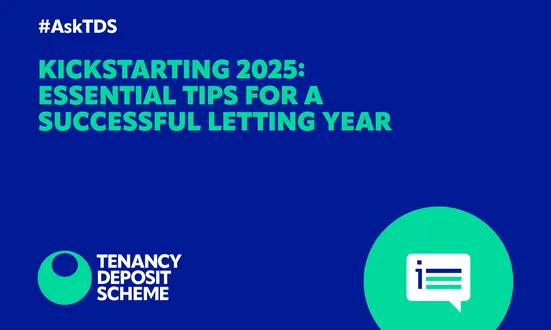It’s the piece of legislation that everyone in the lettings industry has been talking about for the past few years. But will it actually come to pass before the general election?
The rental sector has never been under more pressure. We’ve seen delay after delay to the publication of the Renters (Reform) Bill – a key piece of legislation that we have all heard of in the property sector by now.
In fact, we’ve been waiting at the station for what feels like years. So is this year when the Renters (Reform) Bill leaves the platform? And what will it mean if Labour comes to power?
The current status
The Bill is currently going through Parliament – it’s been announced and is currently being debated in the House of Commons. It will need to undergo similar scrutiny in the House of Lords before it can finally become law.
Elements that weren’t in the original Bill, such as introducing the Decent Homes Standard to the private sector for the first time, have now been added in as part of the plans. It’s possible that further changes will be made as the Bill makes its way through the Commons and Lords. However, we do have more clarity on the key elements after years of speculation.
During the debates held so far, we’ve seen some concessions on issues that were giving landlords major concerns. There will still be broad grounds to evict anti-social tenants or those who consistently miss rental payments.
The Government’s commitment to only abolish Section 21 once the courts are reformed (with no concrete plans or budgets to deliver this) should reassure worried landlords that Section 21 will remain in force for some time yet.
The phased approach
I’ve been recently hearing a change in discourse – of ‘if’ the Renters (Reform) Bill will pass, rather than ‘when’. This is due to the uncertainty over the timing of the General Election, currently expected to take place in the second half of 2024.
But because it’s possible that the Prime Minister might go to the polls early, it’s not 100% certain that the Bill will complete its journey through Parliament before the election is called.
Even if the Renters (Reform) Bill does achieve Royal Assent before the election, that doesn’t mean that all the changes will come into effect from day one. And the timelines are quite confusing.
The transition to rolling tenancies is also looking confusing. For example, it’s set to take place in two stages. The first stage will apply to all new tenancies, from a date to be determined by future regulations. Then there will be a second stage later that applies to existing tenancies, which has not yet been determined.
Similarly, other elements of the Bill, such as landlords needing to join an ombudsman, or being registered on a property portal, will only come into force at a future date to be determined by the Secretary of State for housing. This is likely to allow sufficient time for the Ombudsman to be appointed and the digital processes for the portal to be set up.
Most unclear is Section 21. These so-called “no fault” evictions will not be abolished until the courts have been reformed, which leaves timelines muddy given that no concrete plans have been set out, or budgets allocated, to reform the courts. I think there are also valid concerns around whether the courts will be able to cope with the rise in cases this Bill will likely create, even with increased digitisation.
What if Labour comes to power?
Labour have their own goals for reforming the private rented sector. The party’s National Policy Forum called for the production of a renters’ charter that will focus on abolishing section 21 and introducing a form of the decent homes standard for the private sector.
Labour’s Deputy Leader and Shadow Housing Secretary Angela Rayner MP has also publicly stated that she would abolish Section 21 on “day one” after entering office. However, beyond these hints at the future direction of travel under Labour, we are all unclear as to what exactly they would do, and when.
How will the Renters (Reform) Bill actually impact the private rented sector?
Right now, all the anecdotal evidence points to a rising number of landlords deciding to sell up. This, combined with a chronic lack of new rental homes being built, is creating a supply and demand issue that is driving up rental prices, creating despair for tenants seeking new homes, and resulting in market conditions which this Bill hasn’t been designed to fix.
The Government should not see this legislation as a job done. It should be the first step in a longer line of urgent changes that are needed. A healthy rental market requires empowered, protected tenants as well as fair-minded, incentivised landlords in order to function. Any legislation that addresses one without the other won’t make the difference it needs to.
For more of Goodlord’s work on encouraging a fairer private rented sector for landlords, letting agents, and tenants, see our work at goodlord.co/Renting-Done-Right
TDS API and Goodlord have integrated, saving agents up to 10 minutes per tenancy registration. You can read more about this integration with Goodlord here.

Protecting deposits with Tenancy Deposit Scheme is quick and easy. Choose from our FREE custodial scheme, or our best value Insured scheme.
The views expressed in this content are solely those of the author alone and do not necessarily represent the views of TDS, its officers, or employees.
Other news stories


